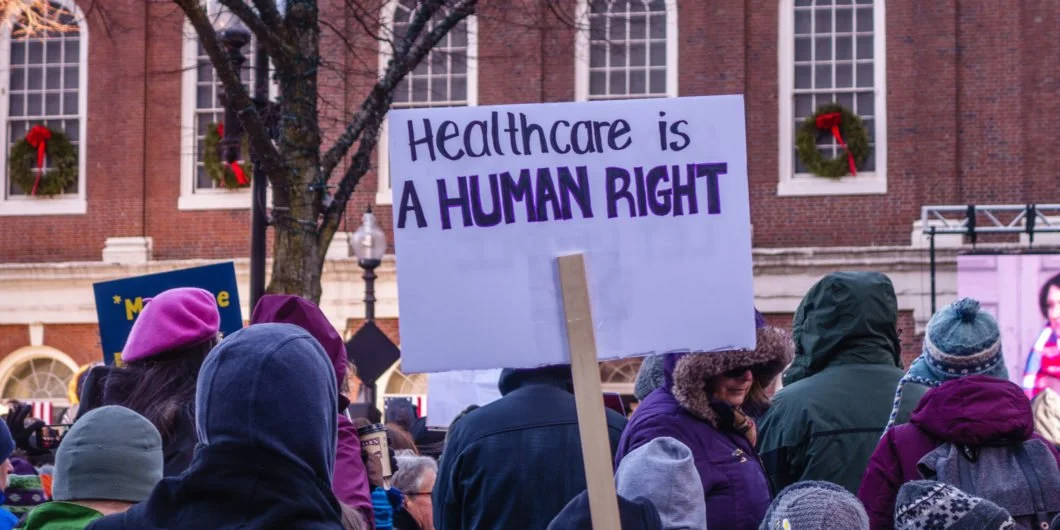Beyond the Beltway, Local Indivisible Groups are Making Waves
Photo credit: Shutterstock
Indivisible is primarily known as a national organization that mobilizes groups and individuals on national issues, since its birth opposing the Trump/Republican agenda to current battles on ending the filibuster and passing voting rights legislation.
But local “Indivisibles” are also making a mark, with hundreds of them operating autonomously around the U.S. While these groups are sometimes active on the federal issues suggested for them by the national office, most are mainly focused on making waves in their own communities. These groups are embracing Indivisible’s message—that everyday people can understand, participate in, and shape public policy—and they’re putting that message into practice.
As part of our research on Indivisible (read our brief here), we found 158 articles about Indivisible groups, including letters to the editor by Indivisible members, in local outlets from Jan. 4 – Nov. 16 of this year. Here are some examples of work being done by local groups, some of which is happening in small towns you may not have even heard of.
Indivisibles are paying attention to their local police forces. That’s the case in Modesto, California, where Indivisible Stanislaus held a February town hall to educate participants about a proposed civilian police oversight committee—and in Strongsville, Ohio, where Strongsville Indivisible members testified in August about racial bias in the city’s police force at a city council meeting and wrote a letter to their city council protesting the “Blue Lives Matter” flag in their police department’s lobby. Looking to local criminal justice more generally, Livermore Indivisible in Livermore, California, held a candidate forum last October to question candidates running to be the next district attorney for Alameda County.
Some local groups are also doing what they can to promote COVID-19 mitigation in their communities and states. In Jackson County, Oregon, ORD2 Indivisible’s August “We Care” campaign focused on encouraging residents “to be COVID cautious,” and included the delivery of emergency kits to healthcare workers. In Little Rock the same month, members of Arkansas Indivisible joined a coalition protesting misinformation about COVID being spread by that state’s Republican leadership while Indivisible Oklahoma took to Facebook to support a local Tulsa group’s stand in support of mask mandates for local schools. And in September, Traverse Indivisible in Traverse City, Michigan, rallied to support a local medical director whose contract wasn’t renewed after he criticized the Grand Traverse Board of Commissioners for refusing to mandate COVID vaccines for public employees.
Locals are also taking action in opposition to Republicans, pushing their Democratic Party electeds to be more progressive, and creating the kinds of community ties and relationships that can lead to local and, eventually, larger victories on both the policy and electoral fronts.
When local New York Republicans held an August fundraiser and invited Trump, members of Westchester Indivisible protested his presence—and stood up to the terrorist Proud Boys members who were also present for more than three hours. Last spring, Prescott Indivisible in Arizona protested U.S. Rep. Paul Gosar’s support of Trump’s attempted takeover of the government—a position that local Indivisibles in Belleville, Illinois, York, Pennsylvania, and Durango, Colorado, have also taken with their own Republican electeds; on the other end of the spectrum, in October, members of Hillcrest Indivisible in California were among many Indivisible groups that encouraged their Democratic members of Congress to support aspects of President Biden’s agenda.
Turning back to their immediate communities, three local Indivisible groups were among the organizers of the first-ever LGBT Pride event in Tewksbury, Massachusetts, in October. When bus drivers in Reno, Nevada, went on strike in August, Indivisible Northern Nevada joined them on the picket line. Earlier in the summer, in June, Lower Cape Indivisible joined several local organizations for a rally and press conference in opposition to the construction of a local gun range.
And neither last nor least, there’s the time last winter when the heat went out, and Indivisible went in on behalf of freezing residents of an apartment complex in their community. Last February, when the landlord of the Riverside, Illinois, apartment complex failed to fix a broken boiler, the Indivisible West Suburban Action League joined another local group to protest outside of the complex owner’s home. The heat was restored.
These kinds of local actions—and all the other actions being taken by local groups that are and aren’t reported in local outlets across the country—are the reason we encourage Blue Tent readers to invest in local Indivisibles. Such groups get little support from the national office, so donations really matter. To find out if a local Indivisible group in your area is accepting financial support, either directly or through the national organization’s Distributed Fundraising Program, start by contacting the local group. If your local groups aren’t accepting donations, you can find another group and learn how to support it by contacting Indivisible directly at fundraising@indivisible.org.
To explore what Indivisible is doing at the national level and the impact of this work, see our recent research brief—Indivisible: What Donors Need to Know.

